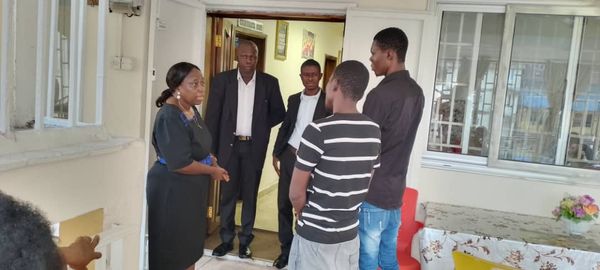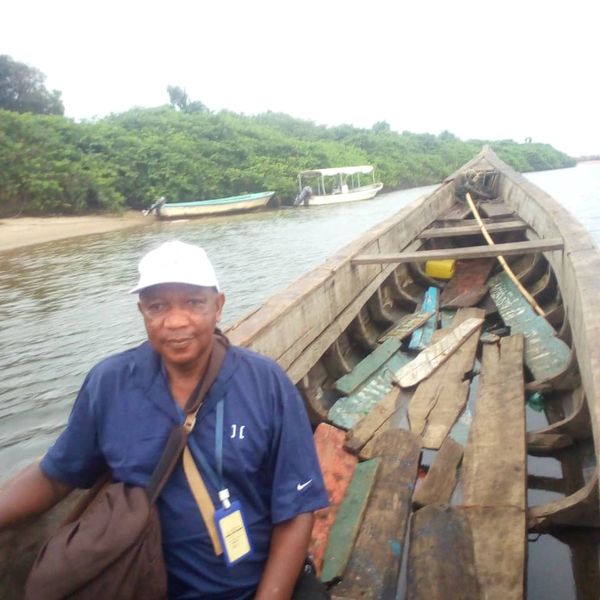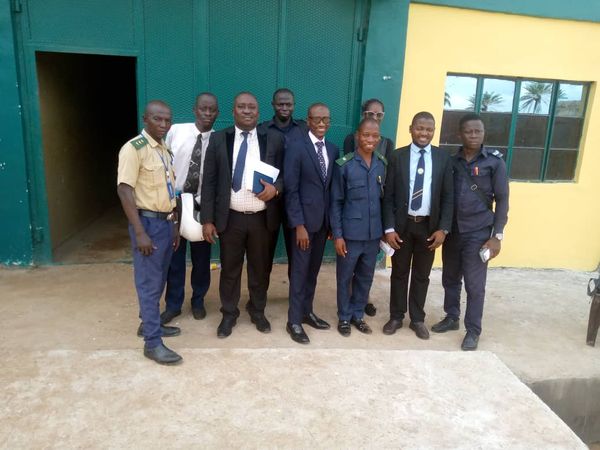A study titled ‘Cost-effective front-line justice services in Sierra Leone: a case study in frugal innovation and domestic resourcing’ by the Overseas Development Institute (ODI) describes the Legal Aid Board (Board) as the most cost-effective in-service delivery. The study focuses on innovative approaches taken by the Board to provide legal services at a low-cost relative to schemes in other low-income countries.
The study highlights how frugal innovation and strategic domestic resourcing have played a crucial role in establishing an accessible and cost-effective nationwide service providing legal aid to Sierra Leone’s most marginalized and vulnerable communities.
The study describes Sierra Leone as a rare example of a low-income country where the government funds nationwide front-line legal advice, assistance and representation for civil and criminal matters. ‘Launched in 2015, the Legal Aid Board has offices across the country. It assisted 160,000 people in 2023, two-thirds of them women and girls. The Board is also by far the most popular justice institution in the country,’ the study notes.
The study underlines the importance of Government funding which has enabled the Board to scale-up nationwide service. It added that the Government of Sierra Leone provided 78% of funding to the Board in 2021–23.
‘The scale of the Board’s operations has driven down its unit costs, creating a virtuous circle with lowering unit costs enabling further scale-up. Unit costs fell by a factor of three between 2018 and 2023. In 2023, each case where the Board provided legal advice, assistance or representation, cost an average of $11. This is well below ODI’s benchmark of $20 per case for low-income countries. The Board’s low unit cost is particularly remarkable as a quarter of its costs are attributable to providing legal representation for criminal cases,’ the study notes.
The study attributes the successes of the Board to its innovative 2012 Legal Aid Act, which recognizes paralegals as part of the justice system. Additionally, the Board adopts a mixed model of criminal and civil legal aid, embracing the role of both lawyers and paralegals. ‘This de-regulated model allows the Board to operate cost effectively, deploying its staff efficiently. This, together with its frugal, innovative approach (including its pioneering approach to child maintenance payments) has enabled the LAB to take its operations to scale,’ the study further notes.
Speaking on challenges facing the Board the study underlines that despite the Board’s expansion, it has less than half the number of paralegals it requires, limiting its ability to reach Sierra Leone’s most marginalized and vulnerable communities. ‘The scope for increased government funding is limited,’ the study notes, adding that ‘the Government of Sierra Leone spends more on justice as it does on health, spending proportionately double the funding on both justice and legal aid that donor countries spend in their countries,’ the study further notes, adding that ‘bilateral donors previously provided significant funding to the justice sector, but withdrew when the Board was launched.’
Still on challenges, the study underlines that there has been no independent in-depth evaluation of the Board’s performance. It attributes this to the fact that Sierra Leone does not have a justice sector research budget. Also, there is limited donor engagement.
The study underscores that there is a strong case for rigorous research to investigate the impact of the Board’s scaled-up model of front-line justice service delivery in a low-income country. ‘ODI’s initial conservative estimate is that the benefit – cost ratio of child maintenance cases is 50:1 (comparable to estimated global rates of return for some of the most cost-effective interventions in the health sector),’ the study notes, adding that ‘this deserves further analysis, as well as the broader impact of the Board’s front-line justice services – as an enabler for the Sustainable Development Goals (SDGs).’
In inclusion the study recognizes the Government of Sierra Leone’s innovative, bold and enabling approach to de-regulating justice services which has created space for the Board to take front-line services to scale and provide an affordable nationwide service of legal advice, assistance and representation for civil and criminal matters.
‘This is an extraordinary achievement. This is all the more so, because it has been made possible through consistent government funding, combined with a low unit-cost model and frugal innovations to deliver a scalable system. Civil society also had played a key role in establishing the role of paralegals within Sierra Leone’s justice system through innovation and experimentation,’ it adds.




